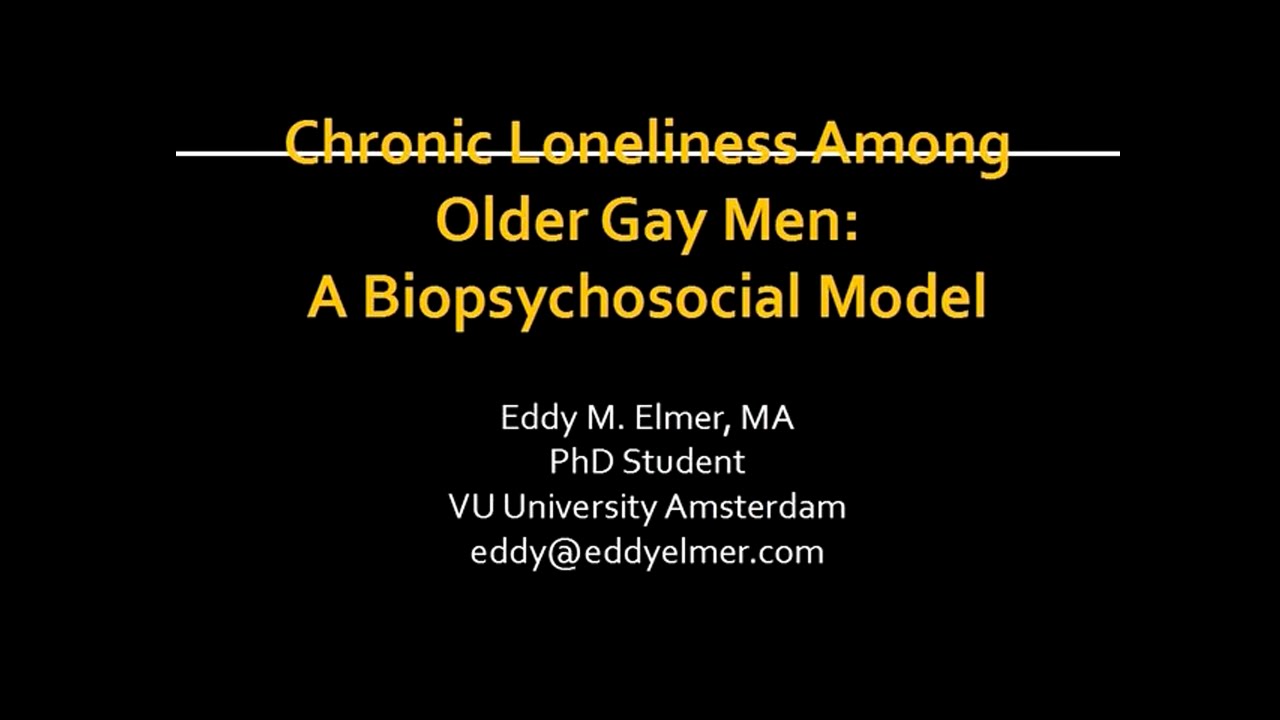Elmer, Eddy. (2014, October). Chronic Loneliness Among Older Gay Men: A Biopsychosocial Model. Presented at the Gay Men’s Health Summit, Vancouver, Canada.
Chronic loneliness—the subjective sense that the size and/or quality of one’s relationships are lacking— has been identified as one of the strongest risk factors for morbidity and mortality. Cross-sectional and longitudinal research shows that chronic loneliness increases the risk for hypertension, heart disease, stroke, immune dysregulation, insomnia, depression, anxiety, and cognitive decline. Considering all major risk factors, loneliness decreases life expectancy as much as smoking 15 cigarettes a day. Compared to their heterosexual counterparts, older gay men experience higher rates of loneliness. This adds to the health burden already experienced by this population not only due to aging itself, but also the cumulative physical and psychological effects of minority stress. This presentation will briefly outline a biopsychosocial model of loneliness that considers the broad causes of loneliness (e.g., sexual stigma, age discrimination, rejection sensitivity) as well as the specific social-cognitive factors that often lock gay men into a vicious cycle of loneliness. In particular, the model will highlight the misperception of social cues that directly results from chronic loneliness, and the self-protective behaviours that paradoxically increase, rather than decrease, distance from others. Following the presentation of the model and supporting evidence, a brief evaluation of the effectiveness of different interventions will be offered so that service providers are in a better position to help their clients break the cycle of chronic loneliness.
source
